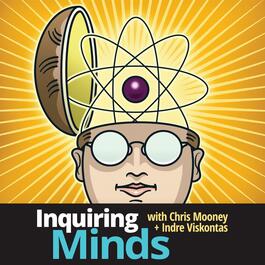
30 Jared Diamond - The Third Chimpanzee
Jared Diamond, author of a suite of massive, bestselling books about the precarious state of our civilization (including the Pulitzer-winning Guns, Germs, and Steel), calls himself "cautiously optimistic" about the future of humanity. What does that mean? "My estimate of our chances that we will master our problems and have a happy future, I would say the chances are 51 percent," Diamond explains on this week’s episode. "And the chances of a bad ending are only 49 percent," he adds. Diamond didn't start out as the globe-romping author, prognosticator, and polymath whose books—kind of like those of Stephen Hawking—we feel like we have to have read in order to feel moderately intelligent. Rather, after a Cambridge training in physiology, Diamond at first embarked on a career in medical research. By the mid-1980s, he had become recognized as the world's foremost expert on, of all things, the transport of sodium in the human gall bladder. But then in 1987, something happened: his twin sons were born. "I concluded that gall bladders were not going to save the world," remembers Diamond. "I realized that the future of my sons was not going to depend upon the wills that my wife and I were drawing up for our sons, but on whether there was going to be a world worth living in in the year 2050." The result was Diamond's first book, The Third Chimpanzee: The Evolution and Future of the Human Animal. It's the book that came before Guns, Germs, and Steel, but it very much lays the groundwork for that later work, as well as for Diamond's 2005's ecological jeremiad Collapse: How Societies Choose to Fail or Succeed. In a sense, The Third Chimpanzee ties together Diamond's thinking: It's a sweeping survey of who we humans are—evolutionarily speaking, that is—and what that says about whether we can solve the "various messes that we're making now," as Diamond puts it. And this month, The Third Chimpanzee has been released in a new, shortened and illustrated edition for young adults, underscoring Diamond's sense that our entire future depends on "enabl[ing] young people to make better decisions than their parents." In other words, if you want to really, really simplify Diamond's message these days, it would be something like this: Go forth, young chimpanzees, and clean up the mess we made. Or else. For Diamond, the story of who we are is also the story of what we must do. The younger among us, anyway. This episode also features a discussion of the science (and superstition) behind this week's "blood moon," and the case of K.C., the late amnesiac patient who taught us so much about the nature of human memory. iTunes: itunes.apple.com/us/podcast/inquiring-minds/id711675943 RSS: feeds.feedburner.com/inquiring-minds Stitcher: stitcher.com/podcast/inquiring-minds Support the show: https://www.patreon.com/inquiringminds
From "Inquiring Minds"




Comments
Add comment Feedback